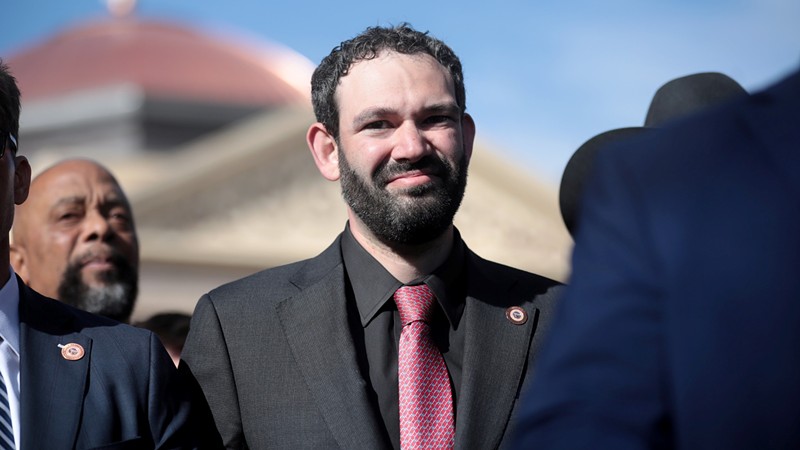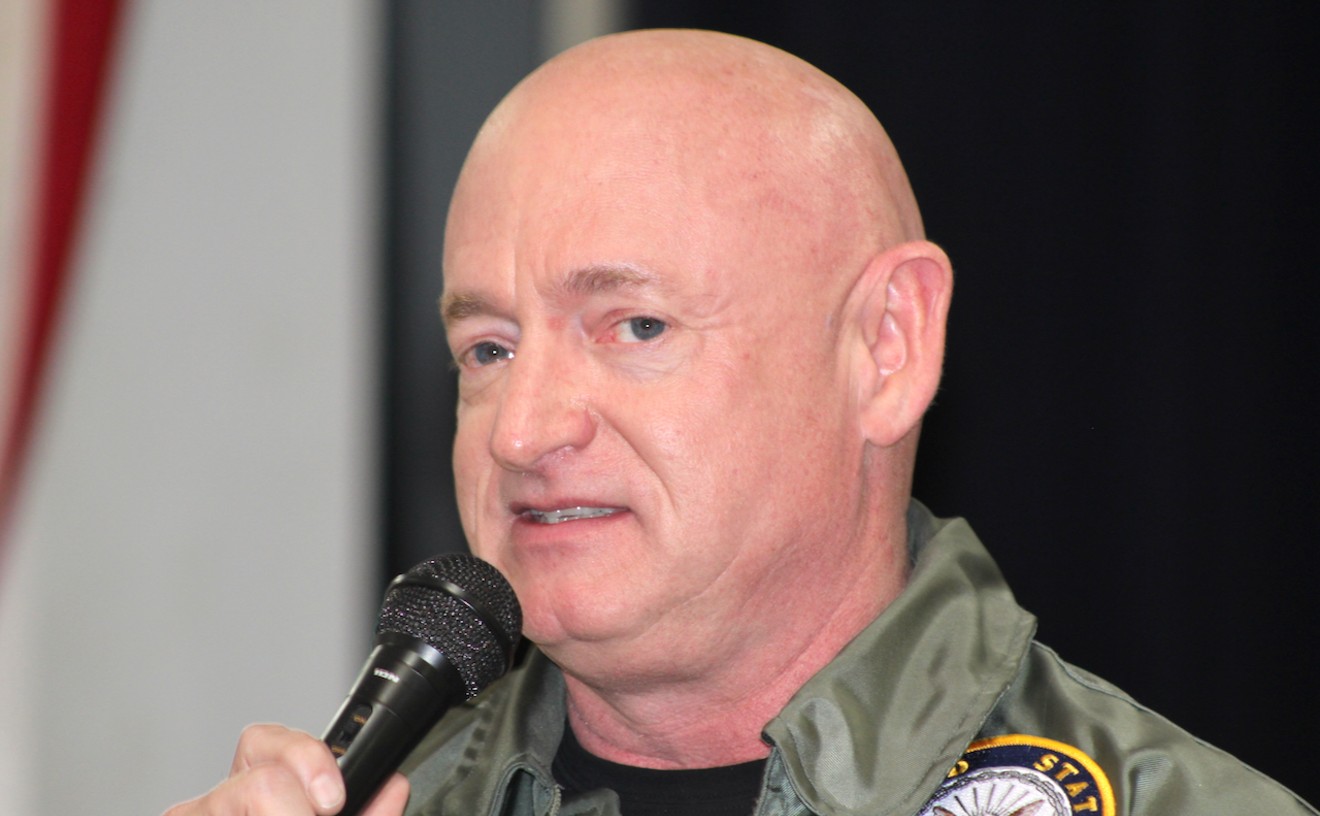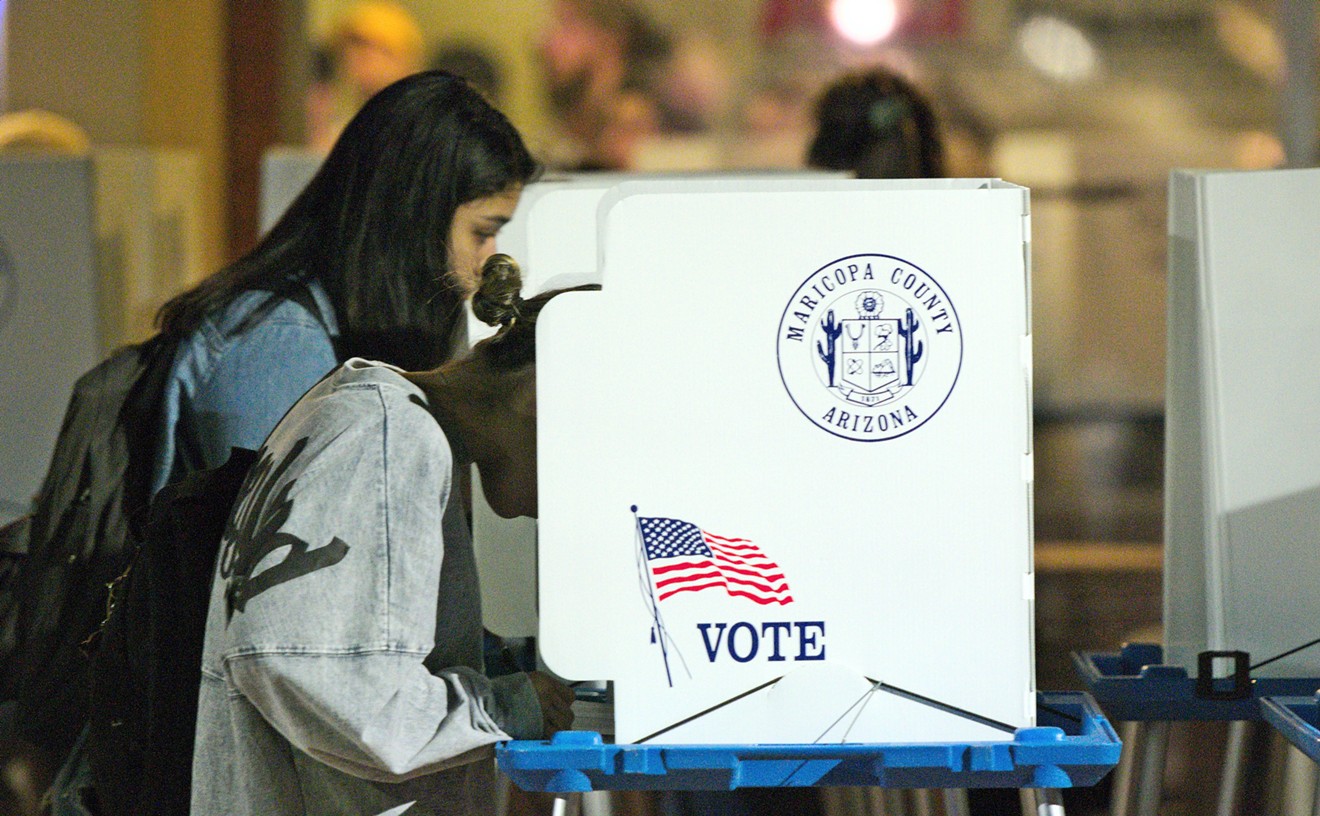The lawsuit, filed by the Republican Party of Arizona and the Maricopa County Republican Committee, accuses both the Maricopa County Board of Supervisors and Arizona Secretary of State Adrian Fontes of improperly conducting logic and accuracy tests on voting equipment ahead of the July 30 primary election. According to the suit, those tests were performed earlier than protocol allows.
Representing the county and state GOP in the suit is state Rep. Alexander Kolodin, a Scottsdale attorney who was sanctioned and placed on probation by the State Bar of Arizona in December for leading a different lawsuit that claimed massive election fraud without any evidence to back it up.
Kolodin told Phoenix New Times that this latest lawsuit doesn’t seek to change past elections or even the 2024 primary results. Instead, it is focused on the general election in November. The suit asks Maricopa County Superior Court Judge Michael Gordon to order officials to test voting equipment according to the rules of the Elections Procedures Manual, which was approved by Fontes and written by his office.
“The AZ GOP is trying to be proactive and identify issues in election administration in advance of the 2024 general so that we can get those kinks worked out and hopefully have a much smoother election process for the general election than we’ve had in prior cycles,” Kolodin said. When asked if there are any other election issues on the Republican Party’s radar, Kolodin said he only wanted to talk about the lawsuit.
The secretary of state’s office and the county declined to comment. The deputy director of the county’s elections department, Christine Dyster, did not respond to New Times’ questions.
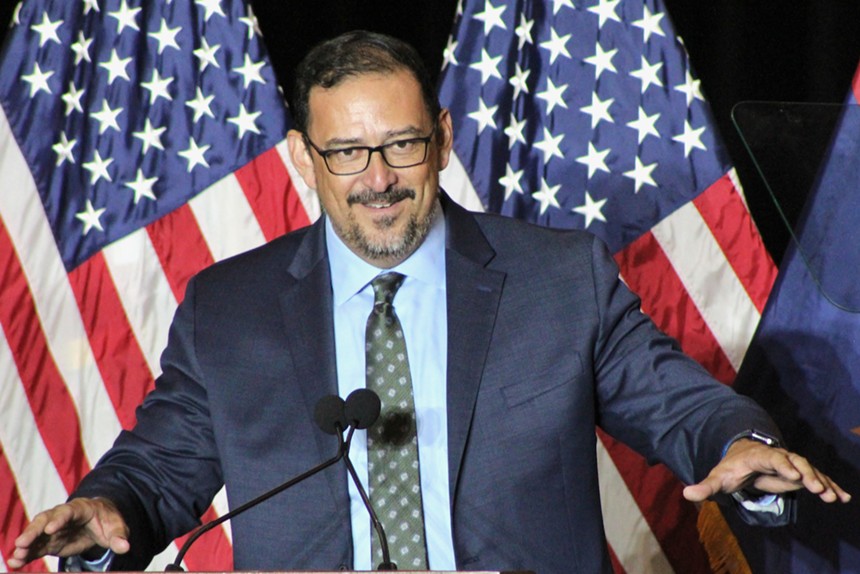
The lawsuit said the office of Arizona Secretary of State Adrian Fontes tested only backup voting machines in advance of the 2024 primary election.
Elias Weiss
'Contrary to law'
The lawsuit accuses Maricopa County and the secretary of state of conducting logic and accuracy testing earlier than allowed and not as thoroughly as mandated.On June 18, according to an email included as an exhibit in the suit, Dyster emailed Democratic and Republican officials to say that the county would conduct logic and accuracy testing the next day. In a sworn affidavit, Michelle Masters, the state GOP’s deputy director of election integrity, said tabulators were tested on June 19.
The lawsuit claimed the testing was performed too early, according to the state’s elections manual. The manual says testing is supposed to take place within 30 days of the election — or after July 1 this year.
Additionally, the lawsuit said that the Secretary of State's Office conducted its own tests on July 2, which was confirmed by Fontes spokesperson JP Martin. The county also posted a video of the July 2 testing on YouTube. However, according to the lawsuit, the election manual requires the secretary of state to perform those tests within 17 days of the election. For the primary, that would be no sooner than July 14.
“Requiring all machines to be tested no sooner than a (certain date) prior to an election serves the important function of limiting the time available for malfeasance,” the lawsuit said, adding that the county and secretary of state “acted contrary to law” by doing early testing.
The state elections manual does require testing to be performed within those time periods. However, the manual doesn’t explicitly preclude additional testing before those time periods. It’s not clear if the county or secretary of state plans to conduct an additional round of testing before the July 30 election. The state election manual says any logic and accuracy testing must be announced at least 48 hours before it occurs, and polls close in seven days.
The lawsuit also claimed that Fontes’ office did not test enough machines. If the secretary of state chooses to do a “consolidated” test, in which all vote center tabulators and accessible voting machines are tested, it must occur between June 27 and July 4. The tests Fontes’ office performed on July 2 fall within that time frame. The suit claimed that Fontes indeed chose to perform consolidated testing — though Martin would not confirm that to New Times.
Though Fontes may have adhered to the time frame requirements, according to the lawsuit, his office did not test enough machines. “The Secretary, far from testing all such equipment, tested none of the equipment actually scheduled to be used by voters,” the lawsuit said. It claimed — via a sworn affidavit by Masters — that the secretary of state’s logic and accuracy testing included only 12 deployable tabulators and six accessible voting devices.
“These were spare devices, and they lacked location markings associated with scheduled deployment to a vote center,” Masters wrote, adding that Fontes' office "did not test any such equipment actually scheduled to be used by voters." The lawsuit claimed the devices tested were not randomly selected, since they were all supposedly backup machines. For these reasons, Masters and another GOP observer, Craig Berland, did not sign a form attesting to the faithful performance of the testing job.
The suit also accused the Maricopa County Elections Department of testing equipment outside the proper time frame after the arrest of temporary county elections worker Walter Ringfield Jr., who was charged with stealing a ballot tabulator key fob in mid-June. The security breach led the county to redo testing on all its machines on June 25, which the suit claimed was “prior to any allowable start date under the Timing Rules.”
However, a footnote in the state’s elections manual says that “though not required, counties may, in their discretion, conduct additional pre-election (logic and accuracy) tests prior to the Secretary of State’s pre-election” testing.
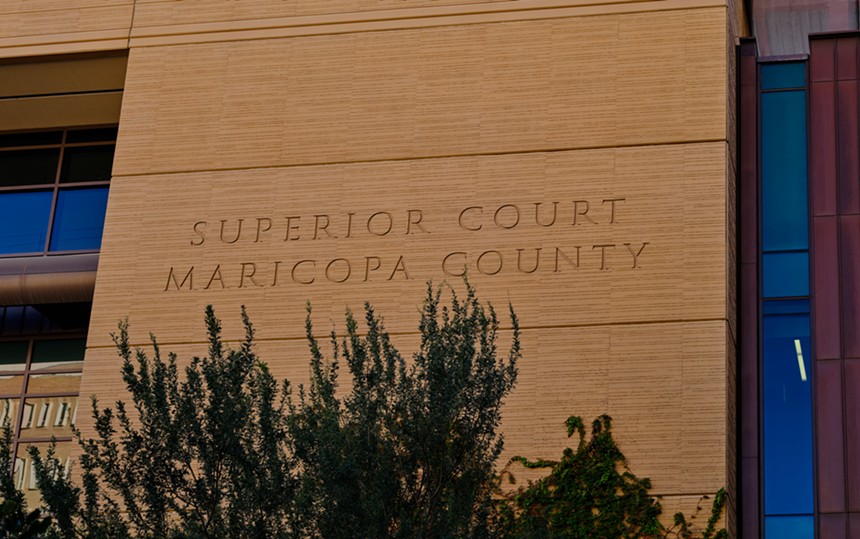
The Arizona GOP lawsuit asks a Maricopa County Superior Court judge to require the county and the secretary of state test ballot tabulators within the proper time frame ahead of the November general election.
Tony Webster
'You tried to assassinate our president'
The lawsuit asked a judge to order the county and secretary to abide by the rules of the secretary of state’s elections manual and to change their tabulator testing schedule, which the lawsuit said is slated to begin “on or around September 18.” According to the county’s election plan, pre-general election testing will be conducted from Sep. 18 to Oct. 6.“Should relief not be granted, then the Republican Party and its representatives will be forced to expend time and resources for the 2024 general election overseeing a process that it already knows will be conducted in a manner contrary to law,” the lawsuit said.
The lawsuit was filed July 12. The next day, a would-be assassin shot former President Donald Trump in the ear and killed another person at a rally in Pennsylvania. Kolodin traveled to the Republican National Convention in Milwaukee a few days later, where he told a Democracy Now! reporter in a videotaped interview that she and the left-leaning independent media site, as well as Democrats as a whole, were responsible for the “deep state” trying to kill Trump.
“I think you guys have lost your privileges to talk about January 6th after you tried to assassinate our president. I’ll leave it at that,” said Kolodin, who proceeded to not leave it at that. “You tried to use the deep state to kill the guy.”
Kolodin did not want to discuss the video with New Times.

